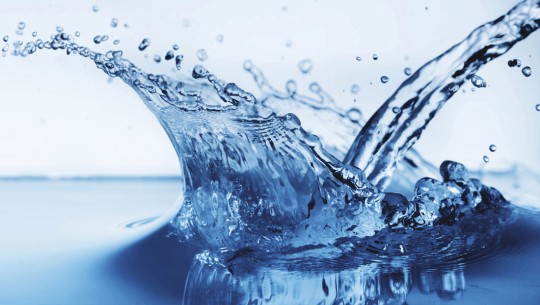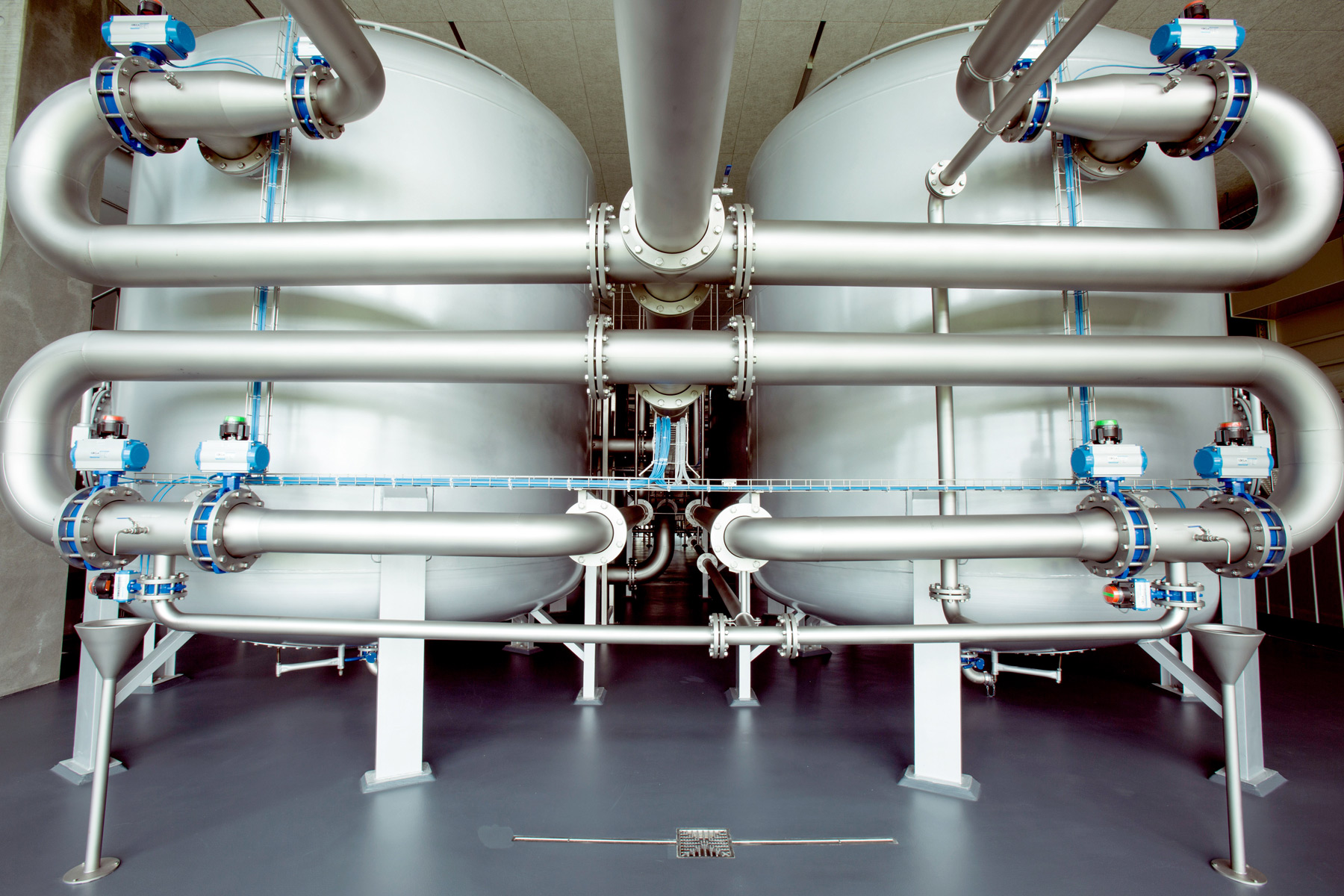Exploring Water Technology Startups: Just How They Change Sustainable Solutions
Water Technology start-ups are becoming crucial players in the pursuit for lasting options to global water concerns. These business take advantage of cutting-edge technologies to improve water performance and monitoring. Their contributions resolve pressing obstacles such as scarcity and contamination. Regardless of their capacity, they face various obstacles that could influence their success. Comprehending these characteristics sheds light on the future of water sustainability and the duty these start-ups may play fit it.
The Value of Water Technology in Today's World
As international water scarcity escalates, the significance of water Technology comes to be progressively obvious. Water Technology plays a crucial role in resolving the obstacles posed by boosting and lessening freshwater resources demand. It encompasses a broad series of advancements, consisting of sophisticated filtering systems, wastewater treatment technologies, and clever irrigation services. These innovations not only improve the efficiency of water use but also promote lasting practices across different sectors, including farming, sector, and city growth.
Moreover, the value of water Technology prolongs beyond source monitoring. It cultivates strength against climate adjustment influences, such as droughts and floods, by providing adaptive solutions for water conservation and administration. Additionally, it sustains public health and wellness by ensuring access to secure and tidy alcohol consumption water. As the globe encounters growing water-related obstacles, the combination of sophisticated water modern technologies is essential for fostering sustainable development and securing water accessibility for future generations.
Cutting-edge Solutions From Water Tech Startups
While traditional strategies to water administration have actually offered their function, a new wave of water technology start-ups is transforming the industry with cutting-edge options (Water Technology Startups). These companies utilize sophisticated innovations to address pressing water problems, such as shortage, contamination, and inefficient circulation. Many startups use expert system and machine understanding to enhance water use and anticipate need, leading to more lasting practices
In addition, a number of companies concentrate on developing innovative purification systems that get rid of pollutants and make water risk-free for intake. Others discover decentralized water treatment modern technologies, enabling communities to handle their water sources better. Some start-ups are pioneering wise irrigation solutions that lessen water waste in farming, advertising ecological conservation.
Case Researches: Effective Water Technology Startups
Countless water Technology start-ups have actually arised as leaders in attending to worldwide water challenges via ingenious approaches. One noteworthy example is Xylem, which concentrates on water analytics and wise framework to maximize water use and minimize waste. Their services have been implemented in numerous towns, demonstrating considerable improvements in water administration effectiveness.
One more effective startup, Absolutely no Mass Water, has created solar-powered hydropanels that remove water vapor from the air, supplying lasting alcohol consumption water in dry areas. Water Technology Startups. This Technology has actually been released in a number of countries, making sure neighborhoods have accessibility to tidy water
AquaVenture Holdings runs a diverse portfolio of water-as-a-service options, resolving water deficiency through desalination and wastewater therapy. Their tasks have confirmed important in areas facing extreme water scarcities, showcasing the capacity of cutting-edge water modern technologies to develop lasting, positive influences. These study highlight the transformative capacity of start-ups in the water Technology industry.
The Duty of Smart Technology in Water Administration
Smart Technology plays a vital duty in contemporary water management by leveraging IoT applications to maximize resource use. Information analytics boosts efficiency by offering actionable understandings, while remote surveillance solutions allow real-time oversight of water systems. With each other, these advancements transform how water is managed, advertising sustainability and functional performance.
IoT Applications in Water
As water shortage and management difficulties increase internationally, the integration of Net of Points (IoT) applications has actually emerged as an essential solution in optimizing water sources. IoT Technology helps with real-time surveillance and analysis of water systems, enabling more efficient use and management. Sensors released in different water frameworks can track high quality, flow prices, and leak, supplying useful data to stakeholders. This data empowers utilities and customers to make enlightened choices, lowering waste and improving conservation efforts. Furthermore, wise watering systems use IoT to enhance water shipment for farming, making sure that plants receive the appropriate quantity of water at the correct time. Generally, IoT applications are transforming conventional water management techniques, fostering sustainability and durability in water source systems.
Information Analytics for Effectiveness
Harnessing data analytics is important for improving efficiency in water monitoring. Water Technology start-ups are increasingly utilizing sophisticated analytics to maximize resource allocation and reduce waste. By evaluating data from different resources, these start-ups can recognize patterns and patterns that inform much better decision-making. For example, anticipating analytics can forecast water need, allowing utilities to adjust supply appropriately, thus lessening surpluses and scarcities. Additionally, real-time data handling enables the prompt detection of leakages and inefficiencies within circulation systems, significantly reducing operational costs. Additionally, data-driven understandings empower stakeholders to apply targeted conservation strategies, fostering sustainable techniques. Fundamentally, integrating information analytics right into water management not just enhances operations however likewise promotes long-lasting sustainability in water source usage.
Remote Monitoring Solutions
While traditional water monitoring systems usually battle with inadequacies, remote surveillance services are changing just how water resources are handled. These ingenious technologies allow real-time data collection and evaluation, permitting stakeholders to keep track of water quality, circulation prices, and usage patterns from afar. Using sensors and IoT gadgets, remote surveillance provides immediate understandings that promote positive decision-making. This change not just improves operational effectiveness but also advertises sustainability by decreasing water waste and maximizing source appropriation. In addition, remote surveillance systems can recognize potential issues before they rise, thus decreasing the threat of contamination or infrastructure failure. As water Technology start-ups proceed to develop these options, the industry is positioned for significant advancements in lasting water administration techniques.
Challenges Dealing With Water Technology Startups
Water Technology startups experience substantial obstacles that can prevent their growth and success. Key issues consist of securing sufficient funding, navigating through intricate regulative environments, and competing in a crowded market. These barriers require tactical preparation and innovation to conquer.
Funding and Investment Challenges
Innovation in water Technology holds immense potential for addressing worldwide obstacles, startups in this field frequently face significant financing and financial investment hurdles. Lots of financiers continue to be cautious, regarding the water field as risky because of its complicated regulatory landscape and lengthy advancement timelines. Furthermore, startups frequently have a hard time to show immediate success, which can deter prospective backers. Conventional financial backing may ignore water modern technology, favoring industries with quicker returns, such as technology or consumer products. Securing grants and government funding can be lengthy and competitive, further making complex economic stability. Therefore, many innovative water Technology startups locate themselves in a ragged edge, requiring imaginative financing approaches to browse these economic obstacles and achieve their goals
Governing Compliance Issues
Guiding governing compliance is a considerable obstacle for startups in the water Technology field, as they must come to grips with a myriad of neighborhood, nationwide, and worldwide policies. These policies frequently encompass water top quality requirements, environmental security regulations, and safety procedures, which can differ extensively throughout territories. Start-ups might find it difficult to browse this facility landscape, particularly when scaling procedures or getting in new markets. The costs related to compliance can be considerable, drawing away resources away from innovation and product growth. Additionally, hold-ups in getting necessary authorizations or accreditations can impede development and market access. A durable understanding of governing structures is crucial for these startups to guarantee sustainable procedures and avoid potential lawful consequences.
Market Competition Characteristics
As water Technology startups emerge in an affordable landscape, they encounter various difficulties that can impede their development and development. Developed business often dominate the market, leveraging sources and experience to keep their positions. Start-ups fight with restricted financing, which restricts r & d abilities, making it tough to complete on Technology and pricing. Furthermore, the swiftly advancing nature of water technologies demands continuous adaptation, additional stressing startup sources. Governing difficulties can complicate market access, as compliance with ecological criteria is crucial yet pricey. Ultimately, bring in competent talent in a niche area offers an additional obstacle, as bigger companies may supply more attractive work plans. Consequently, these elements develop an intricate setting for water Technology startups intending to prosper.

The Future of Water Technology and Sustainability

The future of water Technology will likely concentrate on incorporating artificial intelligence and information analytics to maximize water circulation and usage patterns. By utilizing real-time data, firms can predict scarcities and handle sources more effectively. Additionally, sustainable methods will come to be a foundation of the industry, encouraging circular economic situations where water is recycled and treated. Eventually, the continued advancement of water Technology more info will be important in developing durable infrastructures efficient in fulfilling the challenges positioned by environment adjustment and population development while promoting environmental stewardship.
Regularly Asked Concerns
What Are the Trick Metrics for Evaluating Water Technology Startups?
Trick metrics for assessing water Technology start-ups include market potential, scalability, client procurement prices, earnings development, technology advancement, regulatory compliance, ecological impact, competitive advantage, and group knowledge, all critical for establishing long-lasting practicality and success.
Just How Can Individuals Support Water Technology Innovations?
People can sustain water Technology innovations by purchasing start-ups, promoting for policy adjustments, joining area efforts, sharing understanding regarding lasting practices, and advertising recognition of water concerns with social media sites and neighborhood events.
What Prevail Financing Sources for Water Technology Startups?
Common funding sources for water technology startups include equity capital, government gives, crowdfunding platforms, angel investors, and corporate collaborations. These monetary methods assist assist in development and advancement in lasting water management modern technologies.

Which Industries Benefit A Lot Of From Water Technology Advancements?
Industries such as agriculture, energy, production, and local solutions benefit substantially from water Technology advancements. These advancements enhance water effectiveness, minimize costs, and advertise sustainable methods, eventually adding to environmental preservation and resource administration.
Exist Any Type Of Governing Obstacles Specific to Water Innovation?
Yes, water Technology encounters regulatory obstacles, consisting of conformity with environmental criteria, allowing processes, and varying local laws. These complexities can impede advancement and slow the implementation of brand-new innovations in the water administration field.
Water Technology startups are arising as important gamers in the quest for sustainable services to worldwide water problems. As international water deficiency intensifies, the importance of water Technology ends up being progressively obvious. Others explore decentralized water treatment modern technologies, enabling communities to handle their water resources more efficiently. An additional effective start-up, Absolutely no Mass Water, has developed solar-powered hydropanels that extract water vapor from the air, giving lasting alcohol consumption water in arid regions. Their projects have shown crucial in regions dealing with extreme water shortages, showcasing the capacity of cutting-edge water innovations to develop enduring, favorable effects.